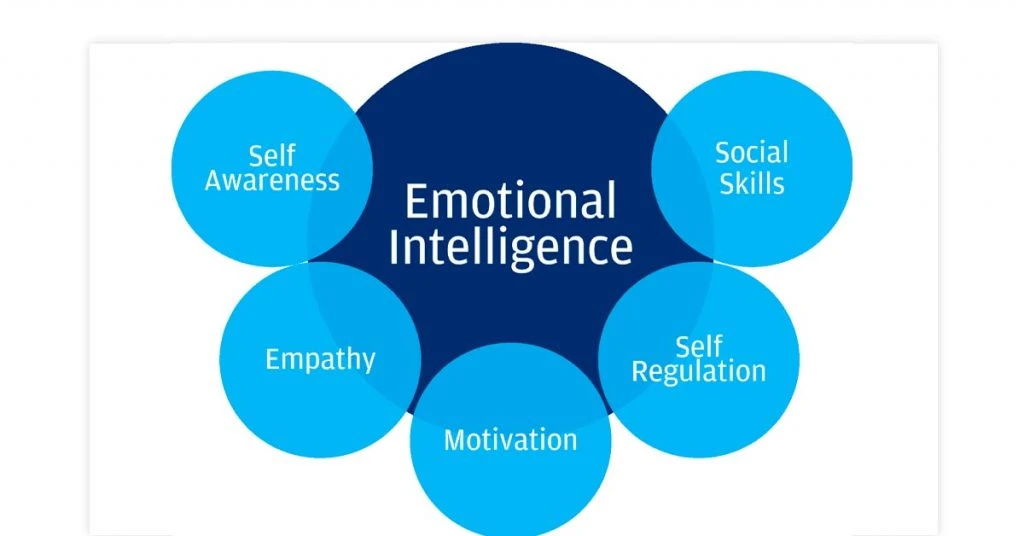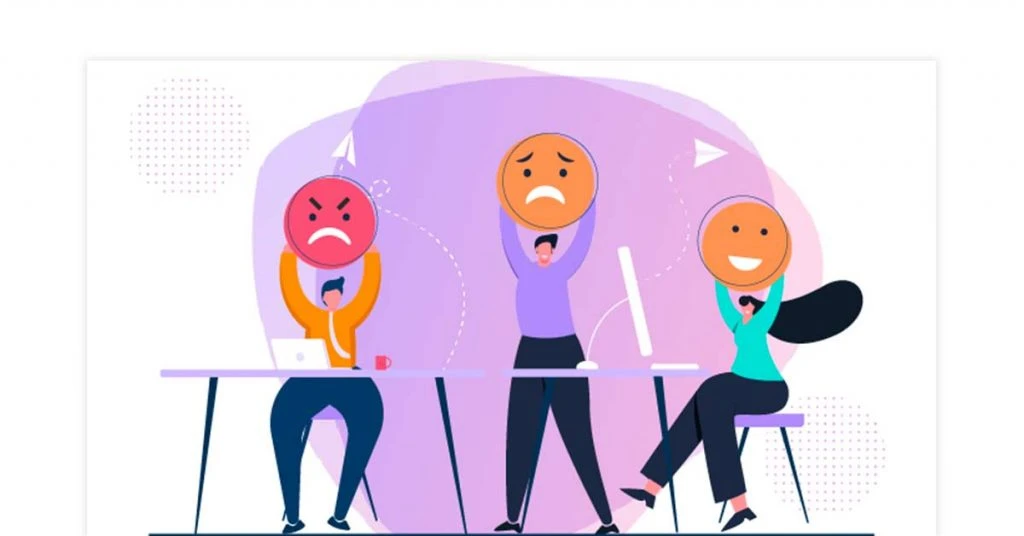Why Emotional Intelligence is Importance in the Workplace?

A person with high EQ or Emotional Intelligence (EI) is likely to be happier and more productive at work, than someone who neglects it. Ignoring emotional intelligence in the workplace takes a big toll on your mental health and can negatively impact an individual’s productivity as well as the organization’s performance.
In an organization, a candidate requires a certain amount of IQ to enter an executive-level job, but EQ is equally important to survive that job.
Here in this article, we’ll touchdown on all the possible aspects of emotional intelligence at a workplace. It will help you to understand its meaning, importance, impact and also how to measure and promote it.
What Is Emotional Intelligence In The Workplace?
Emotional intelligence refers to the emotional quotient of a person based on his or her ability to recognize and manage his/her own emotions. It is a critical aspect of an individual, especially in the workplace. An employee with higher emotional intelligence is likely to manage the feeling well and respond positively in pressing situations.
Components of Emotional Intelligence

Emotional intelligence consists of five distinct components:
- Self-Awareness: Knowing yourself and identifying your own emotions is the first step towards achieving emotional intelligence. It will help you in recognizing your mood and emotions, and learn to see how they impact others.
- Self-Regulation: After understanding yourself, the next step is learning to manage them. At work, you should be able to handle and work under pressure without letting your emotions impact any decisions.
- Internal Motivation: A leader can only inspire his/her team when he/she is self-motivated. Internal motivation makes you feel good and helps understand people better with an open heart and mind.
- Empathy: You can understand other person’s emotions only when you step in their shoes. When you know how your team members feel, you can understand and predict their actions and reactions and understand them better. This helps in creating a non-toxic environment for everyone.
- Social Skills: Socializing helps you in building a personal connection with everyone, which is helpful in any situation of conflict. It helps you in building a positive company culture, initiating collaborations, and enabling team bonding.
These are the components that facilitate a positive and productive employee in a workplace. The one with the higher emotional intelligence tends to shine and grow better than others.
But, what about those who lack these components or emotional intelligence?
EQ refers to someone’s ability to perceive, understand and manage their own feelings and emotions.
Andrew Chignell, an author and a professor at University Center for Human Values, Princeton
Impact Of Lack Of Emotional Intelligence At Work
Lack of emotional intelligence negatively impacts two major areas of your professional life:
- Communication: There is no substitute for effective communication in a workplace, and a lack of emotional intelligence directly impacts your communication abilities. Low emotional intelligence results in less understanding of others and even one’s own emotions. It may lead to inappropriate behavior, or oversharing, or failing to communicate important information.
- Decision Making: Low emotional intelligence may lead to biased, and influenced decision-making. For example, an anxious person may not be able to think neutrally or practically understand the situation. He is she is more likely to take wrong decisions for himself/ herself and even the organization.
Ineffective communication and decision-making abilities eventually lead to lower productivity and quality of work.
But can you identify if your workplace lacks emotional intelligence?
The answer is YES!
How To Measure Emotional Intelligence In Your Workplace?
A subjective and intangible quality like emotional intelligence can also be measured in three most common ways:
1. Self-Report Approach
The Bar-On EQ-i uses a self-report approach which includes a questionnaire of 133 items which the participant has to fill on a scale of 1 to 5. The self-report approach measures the emotional intelligence of a person on factors like self-perception, interpersonal skills, decision-making, self-expression, and stress management.
2. Other Report Approach
The other-report approach uses feedback, views, and external factors like other employees’ and co-workers’ opinions in a 360-assessment format. The report enables you to rate each EI competency and prepare a description of your current state.
In the end, it also offers worksheets that help analyze the result for yourself. You can also give insights on the report, and then implement the learning on yourself.
3. Ability Tests
This approach measures emotional intelligence by solving emotion-related problems. It is based on four fundamental emotional related abilities:
- Perception of Emotion
- Use of Emotion to Facilitate Thinking
- Getting a Deeper Understanding of Emotions
- Practicing Emotion Management
Importance Of Emotional Intelligence In The Workplace

As an individual, leader, or manager, you need to acquire emotional intelligence to keep your professional relationships healthy.
- Higher Job Satisfaction: Job satisfaction for an employee comes from several other factors apart from monetary benefits, A safe and secure environment, freedom of expression, being respected and recognized are some of the factors that contribute to achieving job satisfaction. All these can be offered only when the workplace is emotionally intelligent.
- Better Job Performance: Emotional intelligence is crucial to maintain the productivity of employees and teams. Especially for leaders, it is imperative to understand their own and their team member’s emotions, and how they interact to understand and make decisions for them.
High emotional intelligence will ensure that your managers, leaders, and employees possess self-awareness, self-regulation, empathy, motivation and social skills. Emotionally intelligent employees and management together can create a happy and productive organizational environment.
Benefits Of Emotional Intelligence In The Workplace
Emotional intelligence benefits an individual to attain balance as well as the organization to become more productive. Additionally, you can witness the following benefits of emotional intelligence in the workplace:
- Great Teamwork: Employees with higher emotional intelligence tend to work better in a team. They are open to sharing new ideas and even listen to others with an open mindset. They believe in growing together and not taking control of everything around them.
- Everything Adjusts Easily: The workplace is a very dynamic place where everything keeps changing from people to processes. With higher emotional intelligence at work, it is easy for all to adapt and adjust to changes in the dynamic environment.
- Better Office Environment: An office where employees are emotionally intelligent boost each other’s morale and push their boundaries to succeed. It creates a growing and healthy environment to learn and experiment with new things.
- Enables Self-Control: Everyone has bad days but displaced anger is not justified. Emotionally intelligent employees understand this and know how to react in situations of pressure or distress.
- Gives an edge to your organization: Employees and new talent are looking out for organizations that are emotionally intelligent. Creating an emotionally intelligent workplace will always attract the best of talents and will add up to your organizational skillset.
How To Promote Emotional Intelligence In The Workplace?

Achieving balance at work is something that we are not taught. This is because there is no hard and fast rule to achieve it. Here are some ways in which you can help yourself and your team members to achieve emotional intelligence at work
- Try to build interpersonal relationships at work: We spend more time in our office than we do in our homes. So, our emotions are directly connected to our coworkers. Building interpersonal relationship with your peers is a crucial step towards developing emotional intelligence at work. You can bond over team lunches, attend networking events to meet new people, and try to connect with colleagues even over a cup of coffee.
- Look for the Positive: In moments of pressure and anxiety, our negative thoughts overpower positive ones which lead to anxiety and impulsive behavior. Overcoming this is a part of emotional management. When things don’t go as planned, stop focusing and hammering on the negative part. Instead, focus on the positive side, modify the way you think, think about what you can do to make the situation better. Using positive affirmations at hard times will help you in keeping your confidence and trust intact.
- Indulge in ‘Me Time’ to think: In a regular work week, you have multiple tasks for you and your team members, and that can be a lot of clutter. Scheduling some ‘me time’ from your busy schedule to think, declutter, and organize can help achieve balance at work. This practice minimizes unwanted pressure and helps establish peace of mind.
- Enroll Yourself for Emotional Intelligence Training: Developing emotional intelligence is not an overnight thing. It is a long-term process requiring time, training, and patience. We can all develop and improve our self-awareness, self-regulation, empathy, and social skills by consciously practicing them. Employees can enroll themselves in online and offline personality training to develop emotional intelligence skills.
- Learn to Manage Stress: Everyone experiences stress as it is inevitable. But how it impacts your life, work, and productivity depends on how well you channelize it. Exercise, meditation, frequent breaks, developing a hobby, or just talking to someone can be some quick and easy ways to manage stress.
Emotional Intelligence in the Workplace Examples
So, what does emotional intelligence in a workplace looks like? It is no rocket science, it’s just the small things that make a workplace emotion-sensitive. Here are a few attributes of emotional intelligence at work:
- Patient listening
- Respecting everyone’s feedback
- Freedom of expression
- Flexibility with employees
- Exploration of staff’s creative side
- Connections beyond workplace
- Empathy from coworkers, subordinates and superordinate
- Crystal clear communication
Emotional intelligence lies in the simplest things and gestures that can make your employee feel safe and secure. It is important for leaders, managers, HR professionals, and TCWG to understand and incorporate emotional intelligence at workplaces. Even as an individual it is equally important for you to understand and find an emotional balance to lead a happy life.
FAQs
What are the benefits of emotional intelligence in the workplace?
An emotionally intelligent workplace motivates, improves communication, stress management and creates a positive, and safe work environment.
How does emotional intelligence at Work lead to career success?
Emotional intelligence creates great leaders under whom other team members and the organization thrives.
What is the role of emotional intelligence in the workplace?
Emotional intelligence in the workplace empowers managers and employees to understand each other and create an empathetic environment.
What are the major components of emotional intelligence at work?
Self-awareness, self-regulation, empathy, social skills, and motivation are the major components of emotional intelligence at work.
Isha’s writing journey started way back in 2018 when she graduated in the field of Journalism & Mass Communication. Since then, she has been writing for all digital and print marketing assets including blogs, editorial reviews, landing pages, emailers, and more. She has contributed her writings to genres... Read more





























